EARLY DETECTION MATTERS.
This year, our lung cancer screening grants are open to programs servings patients in Minnesota and SW Florida.
2022 Screening Grant Recipient Winners:
- University of Minnesota Medical School – Pulmonary and Critical Care Department
- Hennepin Healthcare
- Lee Health
RFP for $5,000 and $10,000 Lung Cancer Screening Grants in support of lung cancer screening programs serving Minnesotans and SW Floridians.
A Breath of Hope Lung Foundation (ABOH) provides $5,000 and $10,000 screening grants to Minnesota and SW Florida clinics or hospitals that currently identify and refer eligible patients to screening, and/or diagnose and treat lung cancer. The grants are designed to support initiatives that will increase uptake in current lung cancer screening programs.
By providing these grants, ABOH hopes to ensure that healthcare clinics and hospitals will continually strive to overcome the many patient and systemic barriers to screening to reach our shared goal of earlier detection and improved health outcomes.
This year, ABOH adds grants for up to $5,000 in support of community events held by clinics or hospitals to increase uptake among eligible patients. The Fabulous Over 50 parties will be held between LCAM 2022 and 2023 and shall be designed to either provide screening during the event or shortly thereafter. Community clinics are also encouraged to apply for funding but should have a process identified for conducting shared-decision-making visits and making referrals to a screening program during the event.
Furthermore, it is A Breath of Hope Lung Foundation’s hope that upon completion of the one-year grant period, funded organizations will have improved processes and procedures to identify and screen individuals who meet current USPSTF recommendations for preventative screening.
Recent screening grant recipients:
Minnesota Academy Family Physicians (MAFP)
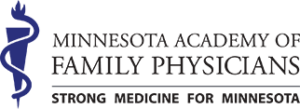 The MAFP plans to use its funds to disseminate information about lung cancer screening to more than 2000 family physicians practicing in Minnesota. Using social media, electronic promotion, a print education article, and conference-based education, they plan to educate their group about recent recommendations from the American Academy of Family Physicians in support of the US Preventive Services Task Force recommendation on annual screening for lung cancer.
The MAFP plans to use its funds to disseminate information about lung cancer screening to more than 2000 family physicians practicing in Minnesota. Using social media, electronic promotion, a print education article, and conference-based education, they plan to educate their group about recent recommendations from the American Academy of Family Physicians in support of the US Preventive Services Task Force recommendation on annual screening for lung cancer.
Cuyuna Regional Medical Center (CRMC)
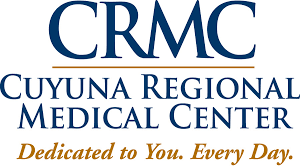
The CRMC program plans to use its funds to train staff to assist with the identification of patients who are eligible for lung cancer screening and to notify appropriate primary care physicians. In addition, they hope to increase uptake by offering financial assistance to patients for whom the cost of a lose-dose CT scan is a barrier.
Lacey Running Hawk, MD, Family Medicine, Onamia, Minnesota
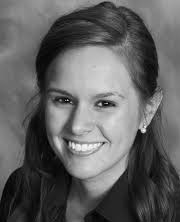
The Mille Lacs Band HHS is committed to delivering quality evidence-based care including screening services. Since the United States Preventative Task Force released new guidelines for lung cancer screening with low-dose CT scanning in 2013, the medical staff within HHS has sought to design a screening program tailored to the needs of our patients. Lung cancer screening is a priority for our clinic given the high smoking rates in the community. Some of the barriers to patients receiving this screening include health illiteracy, accessibility and transportation to the screening location, and the cost of the screening.
The goal of our program is to improve access to and uptake of lung cancer screening in our community through improved awareness, delivery of shared decision-making and smoking cessation in culturally sensitive ways, and facilitation of low-dose CT completion. We aim to facilitate access to lung cancer screening for 100% of our eligible patient population. Importantly, we recognize the importance of a comprehensive management program both before and after the screening low-dose CT exam. We have been very fortunate to partner with Abbie Begnaud, MD, and her research team at the University of Minnesota. They have been a great resource as we design our screening program, and we anticipate a close partnership both in research and as a referral center for our patients.
Karla Provost, RRT, Operations Manager, Pulmonary Medicine, Essentia Health, Duluth Clinic
 Essentia Health serves a large, rural geographic area including, upper Michigan, northern Wisconsin and northern Minnesota. Among the many counties are the largest populations of smokers, from Native American reservations and mining communities of the Iron Range. Thus, the need for tobacco cessation education, and lung cancer screening is immense.
Essentia Health serves a large, rural geographic area including, upper Michigan, northern Wisconsin and northern Minnesota. Among the many counties are the largest populations of smokers, from Native American reservations and mining communities of the Iron Range. Thus, the need for tobacco cessation education, and lung cancer screening is immense.
For many years, Karla Provost, Respiratory Therapist (Essentia Health, Manager, Pulmonary Medicine), has taken a genuine and sustained interest in education and screening for lung cancer. She constructed the Essentia Health Lung Cancer Screening Program, hired Nurse Navigators, and coordinates Primary Care, Radiology, Pulmonology, Pathology, Oncology (medical/radiation), and Thoracic Surgery providers. As of 2017, more than 1500 high-risk patients had been screened. With each diagnosis of a Stage 1 carcinoma definitively treated, one more patient is saved from suffering the agonizing symptoms of Stage 3 or 4 lung cancer, just months later.
Abbie Begnaud, MD, Pulmonologist and Asst Professor of Medicine, University of Minnesota.
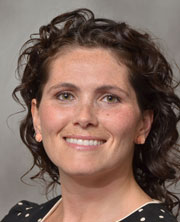 The Lung Cancer Screening program at the University of Minnesota is a comprehensive, patient-centered program offering participation in active research and assistance with smoking cessation. Like many programs, our accessibility is limited by lack of uniform insurance coverage. We have a competitive out-of-pocket price ($99) for all eligible patients. But unlike other programs, the University of Minnesota screening program is the only in the state of Minnesota designated a center of excellence by the Lung Cancer Alliance. Centers of Excellence provide evidence-based care with a multidisciplinary approach, including participation in ongoing research as well as smoking cessation tools for current smokers. Our dedicated thoracic oncology group consists of pulmonologists, oncologists, radiologists, surgeons and nurses who devote themselves to lung and thoracic cancers.
The Lung Cancer Screening program at the University of Minnesota is a comprehensive, patient-centered program offering participation in active research and assistance with smoking cessation. Like many programs, our accessibility is limited by lack of uniform insurance coverage. We have a competitive out-of-pocket price ($99) for all eligible patients. But unlike other programs, the University of Minnesota screening program is the only in the state of Minnesota designated a center of excellence by the Lung Cancer Alliance. Centers of Excellence provide evidence-based care with a multidisciplinary approach, including participation in ongoing research as well as smoking cessation tools for current smokers. Our dedicated thoracic oncology group consists of pulmonologists, oncologists, radiologists, surgeons and nurses who devote themselves to lung and thoracic cancers.
Based on our screening exam costs, a budget of $10,000 (ABOH grant) would provide screening to 101 patients. However, we can help even more patients by processing insurance claims on insured patients who are unable to afford out of pocket costs. Some insurance carriers will reimburse screening exams in certain patients and for these, our institution can be reimbursed. Therefore, patients will not have the anxiety or hassle of wondering whether this will occur and if it does,we have the grant money available to screen another patient.
Gopal Punjabi, MD, Radiologist, Hennepin County Medical Center.
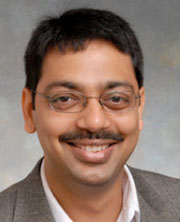 HCMC will use their $10,000 ABOH grant to support the costs of low dose computed tomography lung screenings for American Indian people. Gopal Punjabi, a physician in HCMC’s Department of Radiology, will serve as project director. The entire grant of $10,000 will be used to pay for the low dose CT scans for up to 100 patients; at present, HCMC offers these screenings to people for $99 each. Eligible to participate in the proposed grant-funded screenings would be American Indian people ages 55-79, who have at least 30 pack years of smoking (1 pack/day for 30 years, 2 packs/day for 15 years, etc.), OR those who meet the above criteria but quit fewer than 15 years ago. The goal is to find lung cancer in early stages when it is easier to treat.
HCMC will use their $10,000 ABOH grant to support the costs of low dose computed tomography lung screenings for American Indian people. Gopal Punjabi, a physician in HCMC’s Department of Radiology, will serve as project director. The entire grant of $10,000 will be used to pay for the low dose CT scans for up to 100 patients; at present, HCMC offers these screenings to people for $99 each. Eligible to participate in the proposed grant-funded screenings would be American Indian people ages 55-79, who have at least 30 pack years of smoking (1 pack/day for 30 years, 2 packs/day for 15 years, etc.), OR those who meet the above criteria but quit fewer than 15 years ago. The goal is to find lung cancer in early stages when it is easier to treat.
According to the American Indian Adult Tobacco Survey 2013–Twin Cities Urban Area, “59% of American Indian adults surveyed are current smokers (compared to 16% of all Minnesota adults).” Therefore, HCMC has also begun a relationship with the American Indian Cancer Foundation to provide in kind staff participation in the development of project outreach materials, on-the-ground outreach and follow-up efforts. Like ABOH, HCMC is motivated to help people who experience both health disparities and disparities in screening. AICAF staff will help answer patient questions, provide support in overcoming barriers to screening, and promoting/supporting smoking cessation.

